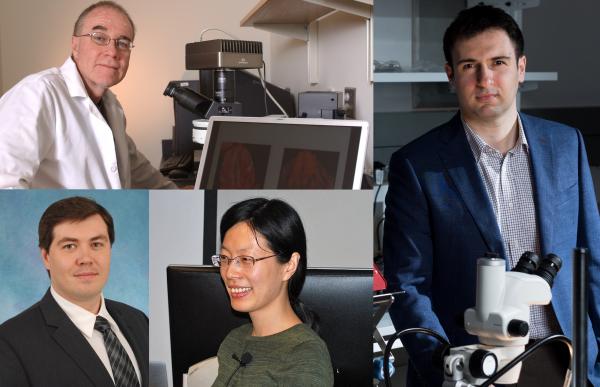Two multidisciplinary research teams have been awarded 2018 Petit Institute Seed Grants.
The program routinely pairs two researchers in the Petit Institute for Bioengineering and Bioscience at the Georgia Institute of Technology, one based in the College of Engineering, one based in the College of Sciences.
The funding period for each of these grants starts July 1, 2018, and the duration will be up to two years, $50,000 for each year, contingent on submission of an NIH R21/R01 grant proposal, or an equivalent collaborative grant proposal, within 12 to 24 months of the year-one start date.
The teams and their projects are:
• John McDonald (professor, School of Biological Sciences) and Fatih Sarioglu (School of Electrical and Computer Engineering). Their project is entitled, “Microchip-Based Isolation and Molecular Profiling of Highly Metastatic Tumor Cell Clusters in Ovarian Cancer.” Ovarian is the deadliest gynecological cancer because it progresses quietly, asymptomatically, leading to later stage detection. The researchers aim to provide insight into ovarian cancer metastasis while also offering a way to monitor ovarian cancer response with minimally-invasive liquid biopsies for personalized prediction of optimal drug therapies.
• Shuyi Nie (assistant professor, School of Biological Sciences) and Denis Tsygankov (assistant professor, Wallace H. Coulter Department of Biomedical Engineering). Their project is entitled, “Unveiling the Mechanisms of Collective Cell Migration through an Integrative Multiscale Study.” Collective cell migration plays a key role in embryonic development, wound healing, and cancer invasion, but it remains a poorly understood phenomenon. Basically, the researchers intend to develop a better tool – they want to provide researchers with a broadly applicable simulation platform that enables a mechanistic understanding of coordinated cell processes like collective cell migration.
Media Contact
Jerry Grillo
Communications Officer II
Parker H. Petit Institute for
Bioengineering and Bioscience
Keywords
Latest BME News
Jo honored for his impact on science and mentorship
The department rises to the top in biomedical engineering programs for undergraduate education.
Commercialization program in Coulter BME announces project teams who will receive support to get their research to market.
Courses in the Wallace H. Coulter Department of Biomedical Engineering are being reformatted to incorporate AI and machine learning so students are prepared for a data-driven biotech sector.
Influenced by her mother's journey in engineering, Sriya Surapaneni hopes to inspire other young women in the field.
Coulter BME Professor Earns Tenure, Eyes Future of Innovation in Health and Medicine
The grant will fund the development of cutting-edge technology that could detect colorectal cancer through a simple breath test
The surgical support device landed Coulter BME its 4th consecutive win for the College of Engineering competition.








